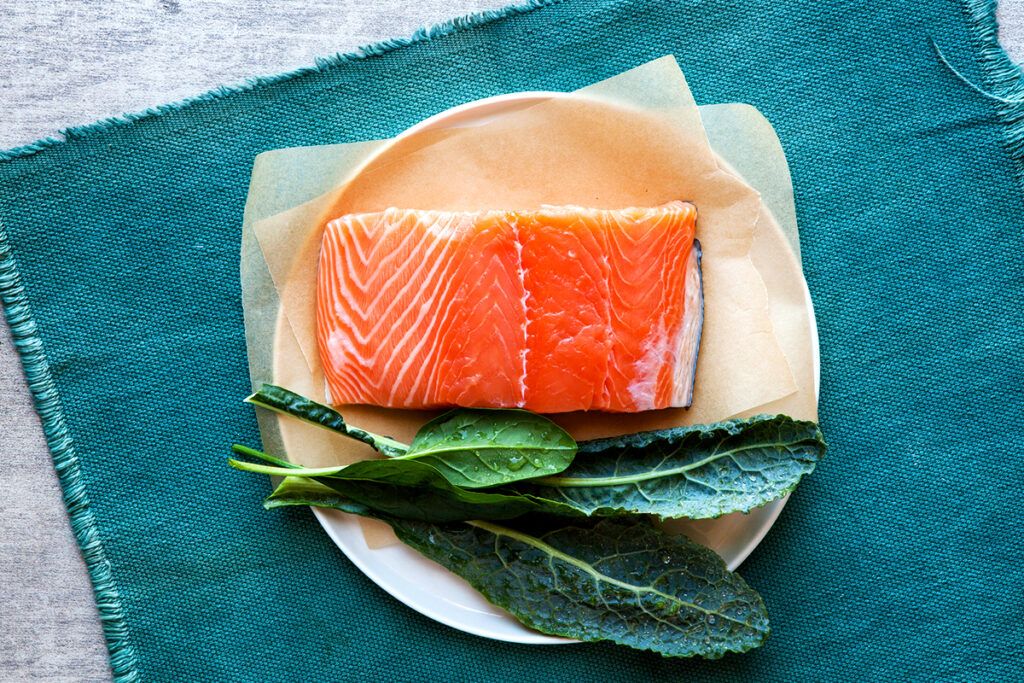What you eat is essential to maintaining a healthy heart. Following a heart-healthy diet can have several benefits, such as reducing your risk of heart disease and stroke, decreasing high blood pressure, and helping you maintain a moderate weight.
There are several foods you can incorporate into your diet to help with this, such as leafy green vegetables, whole grains, and dark chocolate. It is also important to consider limiting certain foods, such as those high in sugar, salt, and saturated fat.
Sex and gender exist on spectrums. This article uses the terms “women” and “men” when discussing people assigned female or male at birth to reflect language that appears in source materials.
While gender is solely about how you identify yourself, independent of your physical body, you may need to consider how your personal circumstances will affect diagnosis, symptoms, and treatment. Learn more about the difference between sex and gender here.
Foods to include in a heart-healthy diet

There are several foods that support your heart health. These include:
Leafy green vegetables
Leafy green vegetables are rich in a variety of vitamins and minerals such as iron, magnesium, and calcium. A 2021 study suggests that regular consumption can lower the chance of heart disease.
Examples of leafy green vegetables include:
- kale
- broccoli
- arugula
- collard greens
- spinach
- romaine lettuce
Try making a simple salad consisting of some of the above vegetables and eating it alongside your dinner.
Walnuts
There are several nuts that have been suggested to increase heart health. However, walnuts, in particular, have been shown to lower heart disease and stroke rates.
Studies have found that walnuts can help decrease blood pressure levels and low-density lipoprotein (LDL) cholesterol, which is more commonly referred to as “bad cholesterol.”
Try chopping up walnuts and adding them to a salad or eating them on their own as a nutritious snack.
Fatty fish
Fatty fish are high in omega-3 fatty acids, which have several benefits, such as improving cognition, energy levels, and heart health.
Examples of fatty fish include:
- salmon
- tuna
- anchovies
- mackerel
- black cod
- sardines
- cobia
Dark chocolate
Dark chocolate has several great properties, including being anti-inflammatory and helping protect against heart diseases. It is rich in several minerals, such as magnesium and zinc, which can benefit your overall mood.
Eating dark chocolate can also help reduce your stress levels by lowering the cortisol in your body.
Whole grains
Whole grains are foods that are made up of 3 elements: the endosperm, germ, and bran. While the product is sometimes taken through a form of processing, it still maintains its nutritional benefits.
Regularly including whole grains in your diet can help you manage your blood pressure, weight, and cholesterol, which can all reduce the risk of heart disease.
Examples of whole grain foods include:
- whole wheat pasta
- quinoa
- brown rice
- whole wheat bread
- oatmeal
- whole grain cereals
- popcorn
Foods to limit on a heart-healthy diet
When eating a heart-healthy diet, it is also important to limit certain foods that can contribute to high cholesterol and blood pressure levels.
Examples of foods to limit include:
Foods high in added sugar
Eating too much food that is high in added sugar can cause inflammation in the body and raise blood pressure levels. Consider limiting food containing added sugar in your diet.
Examples include:
- cakes
- cookies
- pies
- chocolate
- condiments, such as ketchup and BBQ sauce
It can be difficult to know how many sugary foods you should be consuming every day. The American Heart Association (AHA) recommends that women consume no more than 100 calories and men no more than 150 calories of added sugar daily.
Certain drinks can also be high in added sugar. Consider avoiding beverages that contain fructose, such as fruit juices.
Ultra-processed foods
A 2023 study found that overly consuming ultra-processed foods could increase your risk of developing chronic conditions such as heart disease, diabetes, and certain cancers.
Ultra-processed foods are products that contain several added ingredients like starches, sugars, and hydrogenated fats. Be on the lookout for foods that contain a very long ingredient list, such as candy bars.
Examples of ultra-processed foods include:
- ice cream
- chips
- ready meals
- processed meats like pepperoni
- sweetened breakfast cereals
- candy bars
- frozen pizza
Tips for making healthy modifications to your diet
It isn’t easy to make adaptations to your diet or to limit your favorite foods. However, there are several things that may make the process easier.
This includes:
- Making simple swaps: Swapping less nutritious foods for those high in nutrients — such as replacing sugary cereals with oats in your daily eating plan — can help keep you focused on heart-healthy options.
- Cooking at home: Eating out often can mean you’re limited in knowing and managing the ingredients that go into your food. Building the habit of cooking at home can help you incorporate more heart-healthy foods into your diet.
- Planning your meals: Going grocery shopping without a meal plan or shopping list for the week can sometimes lead to impulsively buying products that have a low nutritional value. Planning your meals out in advance can help you avoid this.
Treatment options for heart disease
It can still be beneficial to follow a heart-healthy diet even if you have heart disease. A doctor may also prescribe the following medications to help manage your symptoms:
- ACE inhibitors, such as benazepril (Lotensin) and lisinopril (Zestril)
- beta-blockers, such as atenolol (Tenormin) and bisoprolol (Cardicor)
- anticoagulants, such as rivaroxaban (Xarelto) and warfarin (Coumadin)
If you need help covering the cost of medications, the free Optum Perks Discount Card could help you save up to 80% on prescription drugs. Follow the links on drug names for savings on that medication, or search for a specific drug here.
